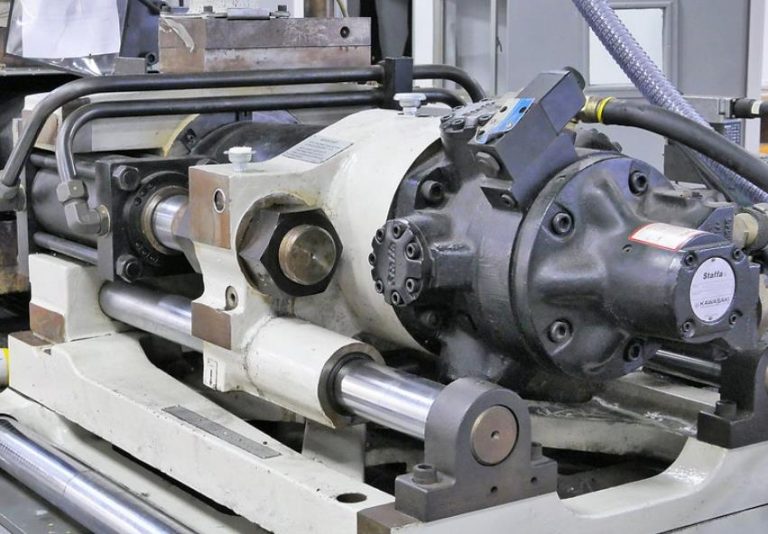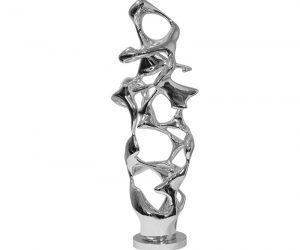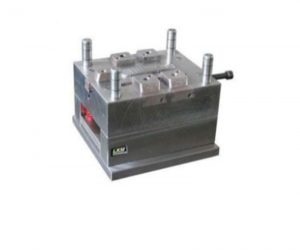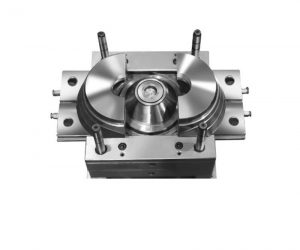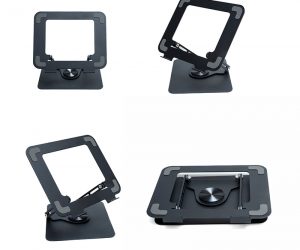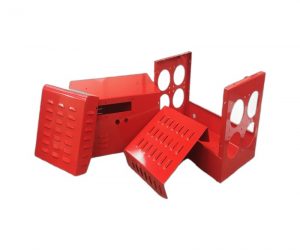SR injection molding, also known as structural reaction injection molding, is an economical and environmentally friendly method for manufacturing plastic products. It uses a low-pressure injection molding process that combines thermosetting resin and reinforcing fibers (such as glass fiber or carbon fiber) to produce both sturdy and lightweight plastic parts. Here are some of the main advantages of SR injection molding:
- High cost-effectiveness: Compared with traditional high-pressure injection molding, SR injection molding has lower costs. Because low-pressure molding reduces the cost of equipment and molds, it is very attractive for small and medium-sized production.
- High strength: Adding reinforcing fibers during the molding process improves the strength and mechanical properties of plastic components. SR injection molded parts can withstand greater loads and pressures, making them suitable for structural components and applications that require high strength.
- Lightweight: Despite its high strength, SR injection molded parts are lightweight, which is ideal for industries that require weight reduction, such as the automotive and aviation industries.
- Design flexibility: SR injection molding allows for design flexibility, and complex shapes and features can be easily integrated into mold design. This process opens up possibilities for innovative product design.
- Reduce energy consumption: The low-pressure characteristics of SR injection molding lead to a decrease in energy consumption during the molding process, which contributes to its environmental characteristics.
- Environmental Protection: Due to the use of recyclable thermosetting resins, SR injection molding is considered an environmentally friendly solution that reduces the impact on the environment.
- Reduce waste: SR injection molding precisely controls material flow, minimizes material waste, and is more sustainable compared to traditional molding processes.
- Short cycle time: Compared with other molding methods, SR injection molding usually has a shorter production cycle, thereby improving productivity and reducing production costs.
- High surface smoothness: SR injection molded parts usually have a smooth surface, reducing the need for secondary processing.
- Chemical corrosion resistance: SR injection molded parts made of thermosetting resin have excellent chemical corrosion resistance and are suitable for applications exposed to harsh chemicals.
Overall, SR injection molding is a multifunctional and environmentally friendly process that provides an affordable solution for producing high-strength plastic products, which are widely used in various industries. It combines strength, design flexibility, and reduced environmental impact, making it an ideal choice for manufacturers seeking sustainable and durable plastic components.
Let's dive into the world of SR injection molding, a method that makes super-strong and long-lasting plastic products. In this blog post, we'll chat about why SR injection molding is so cool and where it's used.
First off, one of the best things about SR injection molding is how tough the stuff it makes is. They use this special resin, heat it up, and press it into molds to create solid, tight structures. This means the final product can handle lots of pressure and last a long time. Think car parts, heavy machinery, and building materials – all needing strong stuff that doesn't break easily.
Next up, SR injection molding is eco-friendly too! The resin they use can be recycled and reused, which is great news for our planet. When these plastic products are no longer needed, they don't have to end up as waste. Instead, they can be turned into new products again. This not only saves resources but also cuts down on plastic trash, making SR injection molding a win for the environment.
And there's more! SR injection molding isn't just for one thing; it's versatile and used in many areas. From cars to phones, from medical gear to everyday items, SR injection molding has got it covered. For example, in the car industry, you'll find it making everything from body panels to seats. In electronics, it helps make phone cases and computer covers. Even in hospitals, medical tools and devices often come from SR injection molding.
In short, SR injection molding is a game-changer because it creates strong, recyclable plastic goods that fit into lots of different jobs. By knowing what it can do, we can use it smarter to help industries grow and take care of our Earth at the same time.
Introduction
Plastic is all around us, from the stuff our food comes in to the toys our kids play with and even the gadgets we use every day. But there's a big problem: plastic takes forever to break down and often ends up in places it shouldn't be, like landfills or oceans. Plus, making regular plastic can use a lot of energy and create waste, which isn't great for our planet.
So, how do we make plastic products that are better for the environment without sacrificing quality? One way is by using something called SR injection molding. This method uses a special kind of resin to make strong, durable, and recyclable plastic items. In this blog post, we're going to break down what SR injection molding is, how it works, why it's good, and where it's used.
What is SR injection molding?
SR injection molding stands for styrene-rubber injection molding. It is a process that involves injecting a mixture of styrene and rubber into a mold cavity, where it solidifies into the desired shape. The styrene and rubber components form a cross-linked network that gives the final product its unique properties.
Styrene is a monomer that can be polymerized into polystyrene, a common plastic material. Rubber is an elastomer that can be stretched and compressed without losing its shape. By combining styrene and rubber in different proportions and conditions, different types of SR resins can be produced, each with its own characteristics and advantages.
Benefits of SR injection molding
SR injection molding offers several benefits over conventional plastic manufacturing methods, such as:
- Cost-effectiveness: SR resins are cheaper than other types of plastics, as they use less raw materials and energy. They also require less processing steps and equipment, reducing the production time and cost.
- Strength and durability: SR resins have high tensile strength, impact resistance, abrasion resistance, and thermal stability. They can withstand harsh environments and mechanical stress without cracking or breaking.
- Recyclability: SR resins are easy to recycle, as they can be melted and reformed into new products without losing their quality or properties. They also have low toxicity and flammability, making them safer to handle and dispose of.
- Versatility: SR resins can be customized to suit different applications and requirements. They can be colored, textured, molded, extruded, or blended with other materials to create various products with different shapes, sizes, functions, and aesthetics.
Applications of SR injection molding
SR injection molding can be used to produce a wide range of plastic products for various industries and sectors, such as:
- Automotive: SR resins can be used to make parts and components for cars, trucks, buses, motorcycles, bicycles, etc. Examples include bumpers, fenders, dashboards, door panels, handles, knobs, etc.
- Construction: SR resins can be used to make materials and products for building and infrastructure projects. Examples include pipes, fittings, valves, roofing tiles, siding panels, insulation boards, etc.
- Consumer goods: SR resins can be used to make products for household and personal use. Examples include containers, bottles, cups, trays, utensils,
Conclusion
SR Injection Molding is a game-changer in making plastic products. It's not just cost-effective but also kind to the environment compared to old-school methods. This new way of doing things saves a lot of energy, which means businesses can cut down on their bills and help the planet by reducing carbon emissions.
Plus, SR Injection Molding is great at cutting waste too. It makes sure more of the raw materials are turned into usable products instead of ending up as trash. This helps companies save money and meets the growing demand for eco-friendly production practices across different fields.
When it comes to speed, SR Injection Molding really stands out. Faster cycle times mean manufacturers can make more stuff without sacrificing quality. This is super useful in industries where getting to market quickly is key, helping businesses stay ahead of the competition.
Quality is another big win with SR Injection Molding. The technology allows for precise control during the injection process, leading to high-quality parts with few defects. This accuracy is crucial for things like medical devices or car parts that need to meet strict standards.
The versatility of SR Injection Molding is impressive. Whether it's delicate medical equipment, tough automotive components, fun kids' toys, or sleek packaging, this method can handle it all. It shows how adaptable and effective it is for various industries.
For companies looking to streamline operations while being green, SR Injection Molding offers a strong case. It helps reduce costs from energy use and waste, speeds up production, and keeps product standards high. By adopting this tech, businesses show they care about the environment, which resonates with customers and stakeholders who value sustainability.
In short, SR Injection Molding is a smart, forward-thinking choice that balances saving money, improving efficiency, and caring for the environment. Its ability to fit diverse industrial needs makes it a powerful tool for positive change in manufacturing worldwide, setting the stage for the future of plastic product making.
